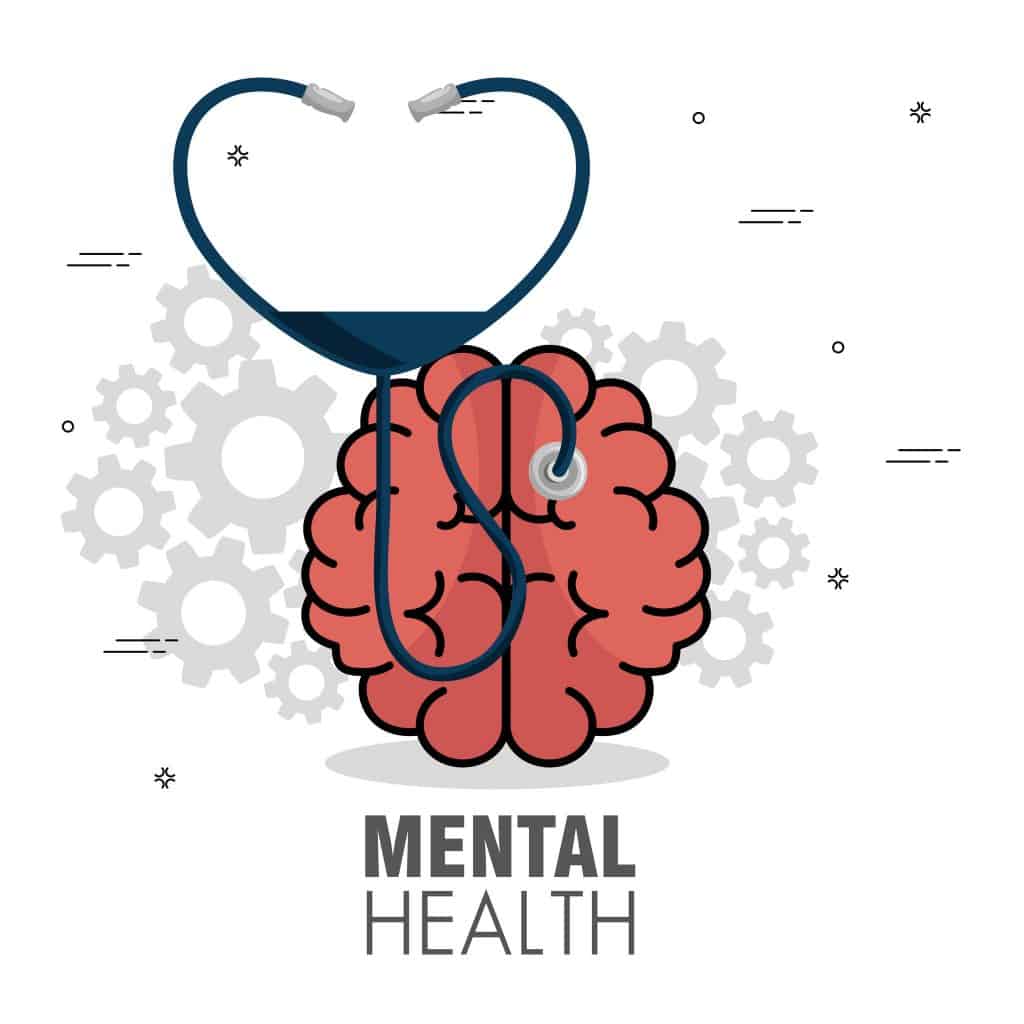Diabetes and Mental Health – Contributing Factors, Information, Treatment
Posted by Prescription Hope - See Editorial Guidelines (Last Updated On: Mon Apr 24 2023)
Medical conditions dealing with mental health used to be taboo until recent years. It has become a frequent topic of conversation. So, what happens if mental health problems lead to other medical conditions or vice versa? In this article, we are going to discuss the correlation between diabetes and mental health.
 Something that is often overlooked is the fact that there is a mind-body connection. So, the things that are happening in our mind can impact us physically. And the things that are happening to us physically can impact our minds.
What do Diabetes and Mental Health have in common? Individuals that are contending with diabetes are twice as likely to develop depression in their lifetime. Those suffering from depression or other mental health conditions may be more likely to develop type 2 diabetes due to lifestyle factors.
Studies have shown that there is a significance between diabetes and mental health. But what exactly is it that’s causing it? And what are ways to treat and prevent the comorbidity of diabetes and mental health? In this article, we’ll discuss the significance between these two severe conditions and what you can do about it.
Something that is often overlooked is the fact that there is a mind-body connection. So, the things that are happening in our mind can impact us physically. And the things that are happening to us physically can impact our minds.
What do Diabetes and Mental Health have in common? Individuals that are contending with diabetes are twice as likely to develop depression in their lifetime. Those suffering from depression or other mental health conditions may be more likely to develop type 2 diabetes due to lifestyle factors.
Studies have shown that there is a significance between diabetes and mental health. But what exactly is it that’s causing it? And what are ways to treat and prevent the comorbidity of diabetes and mental health? In this article, we’ll discuss the significance between these two severe conditions and what you can do about it.
Facts About Diabetes and Mental Health
There was a study done in Quebec that focused on patients that were diagnosed with type 1 diabetes between the ages of 1 and 15. The study shows that suicide rates are higher, and mood disorders are more prevalent among adolescents that have diabetes than those that do not. The results of the study also showed that adolescents with diabetes were twice as likely to visit a psychiatrist. When it comes to type 2 diabetes and mental health, the two seem to go hand in hand. A person with a depressive disorder is more likely to develop type 2 diabetes. Yet, a person with type 2 diabetes is also more likely to develop depression. All in all, those with either type 1 or type 2 diabetes are twice as likely to develop depression than the rest of the population.Factors that can Lead to Comorbidity
There are a variety of factors that can lead to the comorbidity of diabetes and mental health. It is important to remember that many parts of our lives are interconnected, which is what makes these factors important to consider for our health.1. Eating Habits
For someone that has depression, healthy eating can be a struggle. Many people find comfort and enjoyment in food, and so that’s where they turn. When a person is struggling with feelings of sadness, negative thoughts, or loneliness, they may find a temporary fulfillment in food. Unfortunately, the foods that we often find comfort in are not healthy. Foods high in carbohydrates and added sugars can give us an easy feeling of satisfaction by increasing serotonin levels. However, continually eating low-quality foods, such as ice cream or pastries, can lead to weight gain. The poor diet and weight gain will then put you at a higher risk for type 2 diabetes.2. Sleeping Patterns
Sleep is a crucial element to our health, and not getting the proper amount of sleep every night can be debilitating to your health down the road. The problem is that it can be challenging to get the sleep needed, especially if you have a medical condition. Diabetes can disrupt your sleep significantly. A person with type 1 diabetes may wake up often due to low blood sugar events. They may also experience difficulty sleep due to their blood sugar being too high or from lack of control of their blood sugar. This lack of quality sleep can lead to mood disorder. Not getting enough sleep can lead to low energy levels and a poor outlook on life. This can lead to moments of depression for people with diabetes. On the other side of things, if a person has a mental health disorder, then they may lose sleep. It can be difficult for a person with depression or a mood disorder to relax and get quality sleep. This lack of sleep can cause the body’s hormones to be disrupted. The disruption of hormones can lead to a higher risk of type 2 diabetes.3. Inflammation
Research is still being conducted regarding inflammation and the links it may have to other medical issues. Topics surrounding inflammation can be very complex, but based on studies and research, inflammation may be linked to both diabetes and mental health problems. Studies tend to show a link between inflammation and depression. Patients that have internal inflammation tend to have negative thoughts and mood swings. Patients that struggle with depression and have elevated inflammation may find it challenging to be treated with antidepressants. What tends to happen is that the brain will respond to inflammatory markers. When the brain responds to the inflammation, it may give the patients a sick behavior type of feel. However, when the inflammation is prolonged and chronic, then that feeling can become depressive-like in nature. The connection here between diabetes and mental health is that those with diabetes, primarily type 2, tend to show signs of inflammation. Those with type 2 diabetes may generally have a poor diet and be overweight. A person overweight or obese will be carrying around extra fat. The fat cells from the excess fat can produce inflammatory chemicals.4. Difficult Lifestyle
 One other major factor that can lead to the comorbidity of diabetes and mental health problems is the stressful lifestyle of dealing with diabetes. Those with diabetes, whether that be type 1 or type 2, have to undergo dramatic lifestyle changes.
A person with type 1 diabetes has to continually prick themselves with needles and lancets to control blood sugar. And at times, it may seem impossible to get blood sugar levels to become stable, regardless of the number of needle sticks and finger pricks.
A person with type 2 diabetes may have to learn to become disciplined with their eating habits and physical activity. Learning what is beneficial for them and how to make lifestyle changes can be extremely difficult for someone who has spent years not worrying about these things. This can add a lot of stress to a person.
As a person with type 1 diabetes, I have experienced the painstaking process of learning accustomed to the constant needle sticks. On top of that, I’ve had to deal with what seems like uncontrollable spikes and drops in blood sugar levels. This can have a debilitating feeling for some people, and in the midst of it, you want to give up.
Adjusting to this lifestyle and continually dealing with complications related to diabetes can lead to moments of depression, as well as mood swings.
One other major factor that can lead to the comorbidity of diabetes and mental health problems is the stressful lifestyle of dealing with diabetes. Those with diabetes, whether that be type 1 or type 2, have to undergo dramatic lifestyle changes.
A person with type 1 diabetes has to continually prick themselves with needles and lancets to control blood sugar. And at times, it may seem impossible to get blood sugar levels to become stable, regardless of the number of needle sticks and finger pricks.
A person with type 2 diabetes may have to learn to become disciplined with their eating habits and physical activity. Learning what is beneficial for them and how to make lifestyle changes can be extremely difficult for someone who has spent years not worrying about these things. This can add a lot of stress to a person.
As a person with type 1 diabetes, I have experienced the painstaking process of learning accustomed to the constant needle sticks. On top of that, I’ve had to deal with what seems like uncontrollable spikes and drops in blood sugar levels. This can have a debilitating feeling for some people, and in the midst of it, you want to give up.
Adjusting to this lifestyle and continually dealing with complications related to diabetes can lead to moments of depression, as well as mood swings.
Brain Function and Structure
Over the years, research has concluded that diabetes influences the function and structure of the brain. Cognitive function typically declines as we age, but research suggests that it declines faster in those with diabetes. Without a doubt, poor diabetes management and higher blood glucose levels contribute to a faster decline in cognitive function and memory. This has the potential to lead to dementia. Diabetes may not be the direct cause of this type of mental health problem, but it is undoubtedly a contributing factor for some. Studies suggest that type 2 diabetes can increase a person’s risk of dementia by 50%. Research is still needed to determine if this is the same for type 1 diabetes. One thing is for sure, those with poor glycemic control are at risk for declined motor control and cognitive function. That is why there has to be more discussion around diabetes and mental health.Antidepressants and Diabetes
When it comes to diabetes and mental health, we have to consider the use of antidepressant medications. Will certain antidepressants impact glucose levels? Do antidepressants contribute to the onset of diabetes? The use of antidepressants has been on the rise in recent years, and so has the number of individuals with type 2 diabetes. This may make people wonder if there is a link between antidepressant use and diabetes. Though this could be the case, according to some studies, it may be more likely that a person struggling with depression is more likely to develop diabetes due to lifestyle choices. We cannot overlook the fact here that certain medications can impact glycemic control with those with diabetes. Antidepressants known as SSRIs may cause hypoglycemia in some cases. This is rare but can still occur. Hypoglycemia, if left untreated, can be severe and lead to convulsions and coma. Antidepressants can be beneficial for improving glycemic control, though. Those that have diabetes and depression are more likely to have poor glycemic control if their depression is not being treated. Those taking the right antidepressant to treat their depression are more likely to be able to manage diabetes properly. The safety and efficacy of taking antidepressants and treating diabetes at the same time may vary from individual to individual. It is always important that you discuss with your doctor your medical history and what other medications you are taking.Treatment of Diabetes and Depression
The comorbidity of diabetes and mental health problems is difficult to deal with, but both conditions can be treated. When prescribed the right treatment, a healthy and fulfilling life can be achieved. Here are steps you can take to ensure you get the proper treatment.1. Proper Diagnosis
The first step in getting the right treatment is getting a proper diagnosis. If a person has diabetes but has not been diagnosed, then they may be more likely to develop mental health problems. Prolonged high glucose levels may lead to a decline in cognitive function. The high blood sugar and other symptoms of diabetes can lead to mood swings and moments of depression. So, receiving your diabetes diagnosis as soon as possible can prevent mental health issues from becoming worse. The vice versa is also true. A person with diabetes should be aware of mental health problem signs. Parents with a child that has diabetes should look for symptoms of depression. The moment you notice signs of mental health issues, seek out help. The unfortunate truth is that nearly half of the adults with diabetes in America that also had a psychological disorder were not receiving treatment for their mental health issue. This may partly be due to not receiving a proper diagnosis for a mental health problem. Another issue could be the financial strain of getting treatments for two different conditions.2. Psychological Treatment
 A person that has already been diagnosed with diabetes but does not have mental health problems may still want to seek out psychological help. There are aspects of diabetes that can be psychological, such as learning to accept the fact that medications are generally required to be taken the rest of one’s life after being diagnosed with diabetes.
Seeking out psychological help before falling into a depressive state can only be beneficial for an individual. Psychological support and therapy can also aide in dealing with the emotional stress that is often associated with diabetes. Taking care of yourself emotionally and psychologically goes a long way when it comes to living a healthy life with diabetes or any other medical condition for that matter.
We would encourage you to seek out therapy to help you manage stress and to find solutions to any medical conditions you may have.
A person that has already been diagnosed with diabetes but does not have mental health problems may still want to seek out psychological help. There are aspects of diabetes that can be psychological, such as learning to accept the fact that medications are generally required to be taken the rest of one’s life after being diagnosed with diabetes.
Seeking out psychological help before falling into a depressive state can only be beneficial for an individual. Psychological support and therapy can also aide in dealing with the emotional stress that is often associated with diabetes. Taking care of yourself emotionally and psychologically goes a long way when it comes to living a healthy life with diabetes or any other medical condition for that matter.
We would encourage you to seek out therapy to help you manage stress and to find solutions to any medical conditions you may have.
3. Antidepressants
As mentioned above, certain antidepressant medications can be beneficial when treating diabetes and mental health. If the mental health side is being treated correctly, then treatment for diabetes will be made easier. However, you must talk to your doctor about possible drug interactions, and if there are antidepressants that will mask hypoglycemia.Conclusion
The sad truth is that many individuals across America are not receiving the treatment they need because of financial stress. Treating two different conditions, such as diabetes and mental health problems, can be extremely difficult. Prescription Hope understands this. That is why we have created a program to help you afford your medication. We work with over 180 pharmaceutical companies to help you receive your medication for $60.00 a month through Prescription Hope’s medication access service for each medicine. Enroll with us to find out if you are eligible.ENROLL



